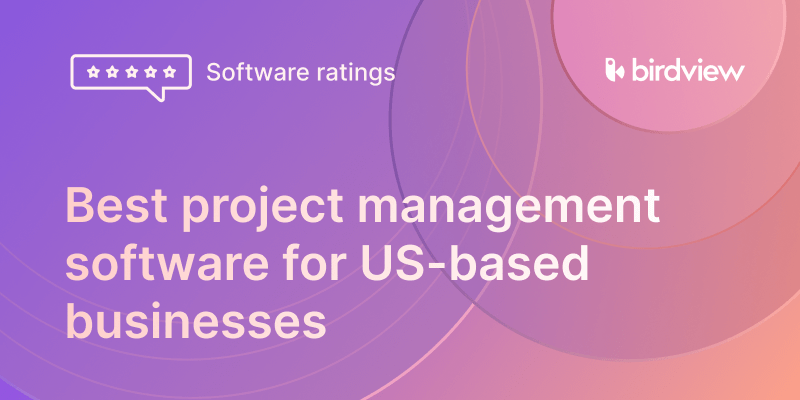Picture this: You walk into work, you sit at your desk, make phone calls, send emails, land a massive account, and your boss loves you. The team throws you a party for being such a valuable asset to the company. There are pats on the back, high-fives, and ear-to-ear grins of appreciation for your achievement. There’s cake too, and it’s delicious, by the way.But, how did you know how to do a fantastic job? How did you know what to do?People are born with their innate talents, but those only go so far in the business world. In every company, an employee requires to develop skills pertinent to their role at work. These skills are taught and honed, and result in an employee that brings productivity and enthusiasm to the workplace.Mentoring your employees results in higher retention rates, more efficient job performance, and a greater sense of purpose at work. Through mentoring your workforce, you create a mutually beneficial relationship for your employees and your company as a whole.In a mentoring relationship, there are two parties, 1) the Mentor and 2) the Mentee. Effective mentoring produces benefits for both parties, not just the mentee. Using an experienced, senior member of your staff for mentoring junior employees is advantageous for every CEO.In order to be a successful, profitable business in the modern, rapidly changing market, as the CEO you require solutions to remain competitive and salient. The profitability of your company demands that you use the least costly methods to produce the most valuable results. Your staff is your greatest asset, and developing their skills and knowledge in turn increases your company’s profits at the end of the day.Instead of using a standard training program, which is costly and takes up valuable company time, a mentoring system saves your company dollars and produces employees that are engaged in their work. A formal mentoring program enhances your team’s talent and is a reliable talent management strategy.As you can see, companies are increasingly implementing formal mentoring programs for their staff’s talent management. Here is why a mentoring program can boost retention rates and overall workplace productivity:
1. Engaging your employees
If you have employees that are developing skills, being trained, and evolving, they will be more engaged in the workplace. Engaged employees are much more likely to be happier in the workplace and satisfied with their role. Being satisfied with placement and responsibility increases retention rates, and provides the potential for junior members to become senior members.71% of companies surveyed believe that employee engagement is paramount for their company’s success. Mentoring programs engage your junior staff, by partnering them with a veteran member of your team, or expert in the tasks they are charged with.
2. Synergy
A mentor and mentee work together, exchanging ideas and strategies in a synergistic mode. A formal mentoring system is not solely benefitting the mentee. In the information age, Millennial new hires have access to information that their mentors can benefit from learning. Nobody knows everything, and the sharing of knowledge between mentor and mentee is a beautiful two-way street.Using a mentoring program, the sum is greater than the whole of its parts, as by working together, both mentor and mentee are able to produce more than either could on their lonesome.The senior staff mentor can pass off tasks that do not demand a higher skill level to their mentee, and the mentee can in turn accomplish their goal at a greater pace because they have been shown exactly what to do, and how. This saves the company time and enhances overall company performanceWhile working together, the mentee is also learning from the mentor how to perform higher-skilled tasks assigned to the mentor. At the same time, the mentor is reinforcing their own basic skills by instructing the mentee on how to perform their tasks. Further, both share in the gains of the company’s success, building enthusiasm and camaraderie. A mentoring program boosts cooperation in the workplace. With synergy between a mentor and mentee, it becomes readily apparent to your team that working together yields greater results than operating individually. When a team is able to divide their tasks and assign responsibilities to the most appropriate member, results happen, and your workforce will realize how cooperating with each other is helpful for each member.Synergy also enhances inspiration and innovation. Your employees may come up with ideas on their own, but when a mentee is working with a mentor, there is a constant flow of ideas and innovation between both employees. The mentee may have experience and insight that they can relay to the mentor, and in turn, the mentor has the experience and knowledge to ascertain how to incorporate these new ideas into your company.Communication is also widened and liberated in a synergistic working environment. When synergy occurs between your team and ideas are being freely exchanged between parties, your staff feels more at ease to communicate concerns, plans, and solutions to one another. By observing how a synergistic mentoring program is universally beneficial to the organization, the individual employees become more willing to communicate their ideas.When you have a synergistic mentoring program in place, your company will also experience increased efficiency?, necessary for the success of every industry. Redundancy halts growth and costs your company money. When synergy happens between your staff, they are sharing their unique talents and learning abilities with each other, to advance toward your company goals. Even if you have, for whatever reason, staff members that are by nature more complacent than others, they will be motivated to contribute more to their work. Once they notice how their team members have an expectation of them to participate in the company’s dynamism, they will be open to becoming more involved with the work. When there is synergy among your staff, through having a well-crafted mentoring program, every aspect of your company is enhanced.
3. Onboarding
Bringing your junior staff up to speed, and quickly, is vital for retention. You can increase the pace at which your staff is familiarized with your company culture, standards, and practices through a well-crafted mentoring program.Millennials are the new workforce, and as you can see, 81% of Millennials that have experienced mentoring are satisfied enough to be willing to stick with the company for the long run. During the first few months of an employee’s tenure with a company, it is crucial to their tenure that they be sufficiently onboarded. Mentoring is a key resource to employee onboarding.When onboarding is accelerated, you can also redeploy members of your experienced staff to other roles, once the junior staff is comfortable enough to perform their tasks without constant guidance.Also, it is worth mentioning, if you are piecing together a mentoring program, do not limit your planning to sole one-on-one arranged partnerships. Group mentoring can be extremely useful for the onboarding process for new hires.The new hire will benefit from making numerous new working relationships with skilled peers, and become acclimated to company culture. By making connections with varied employees through a group mentoring program, new hires will have heightened access to a network of talents and skills they can put to use in their future performance.A group mentoring program is useful for making new hires aware that they are part of a team, and that the senior staff has their back. Successful onboarding via group mentoring showcases how your company is invested in your new hires’ careers, which in turn boosts their own commitment to your company.
4. Increased diversity
Operating with a diverse workforce is a necessary trait for companies to engender creativity and innovation, and develop progressive business strategies. Mentoring provides junior staff with access to a diverse range of mentors to be involved in the molding of a new team member. With a mentoring program, it is easier to share different experiences, successes, and insights into what works best for the role.Business mentoring allows for new hires of diverse backgrounds to feel comfortable with their new job, and feel that they fit in with the rest of the group.In the mentor-mentee relationship, the mentee is building trust, acceptance, understanding, and faith in the company’s desire for them to grow in their career. The availability of a mentor also allows for mentees to access an advisor and confidant, someone they can communicate their concerns, and get solutions to whatever challenges or issues they are experiencing as a new hires.By incorporating a culture of diversity in business mentoring, the company not only secures that their present employees are sharing diverse ideas and planning but also enables the future growth of a diverse talent pool. The effect of using benefits of mentoring to increase diversity are immeasurably valuable to a company, as it lets them stand out from the competition, gain new customers, and become relevant on a global scale.
5. Mentoring as a recruitment tool
As mentioned before, having a robust mentoring program demonstrates to new hires that your company is invested in the workforce’s personal successes, and also that of the organization as a whole.If candidates are seeking employment, and they learn that your company has an intimate and engaging mentoring program, they will be more eager to join your organization than a competitor’s that only provides a simple, old-fashioned training program.An indirect, positive effect of a mentoring program is the effect it has on your online reputation. Mentoring builds morale among employees, and mentored staff is happier, so they are more willing to share their successes at their job on social media. Most people have other friends that work in the same trade but at different companies. If your staff is feeling valued at your company, they will share this information with their contacts on social media.A Facebook post that a person is happy at your company carries enormous weight. Especially since Millennials share everything online with equal levels of subject importance, a word that your company cares about them has a profound impact on their contacts.
6. Venting frustrations
A new job can be stressful for new hires and senior staff alike. Sometimes you need to vent the frustration that you are feeling. Otherwise, you would likely be looking for somewhere else to work. Again, concerning social media, as a CEO you do not want your frustrated employees going on Twitter or Facebook, bad-mouthing their job and your company.People need to vent their frustrations or they will lose confidence in their role at your company, and if they do not begin actively seeking employment elsewhere, at the very least their productivity will slow, costing you profits.In a mentorship program, your employees have a person they can go to when things are becoming tough to deal with. The mentee experiencing frustration can go to their mentor not only for a solution to the problem but also simply to vent. As new hires, they may feel uncomfortable going to a department manager or other supervisor to vent. A mentoring program is a partnership, so new hires have someone they can confide in.The mentor also has skills in problem-solving techniques for the role the mentee has assumed, so they can also help resolve the frustrating issue that is plaguing the mentee.Also, keep in mind that even upper-level and middle-level employees can experience frustration, so if they are in the role of a mentor they can also come to their mentees for solutions to resolve challenging issues.
Trade basic training for a mentoring program
The benefits of the mentoring program are vast and accelerate every component of your organization. Mentoring is like training on steroids. Even if you have a startup and are devoid of experienced, in-house staff to mentor new recruits, you can employ a professional mentoring agency. No matter your industry or level of experience as a CEO, mentoring is the most effective way for getting your staff accustomed to your company, and quickly skilled to succeed in their roles.



